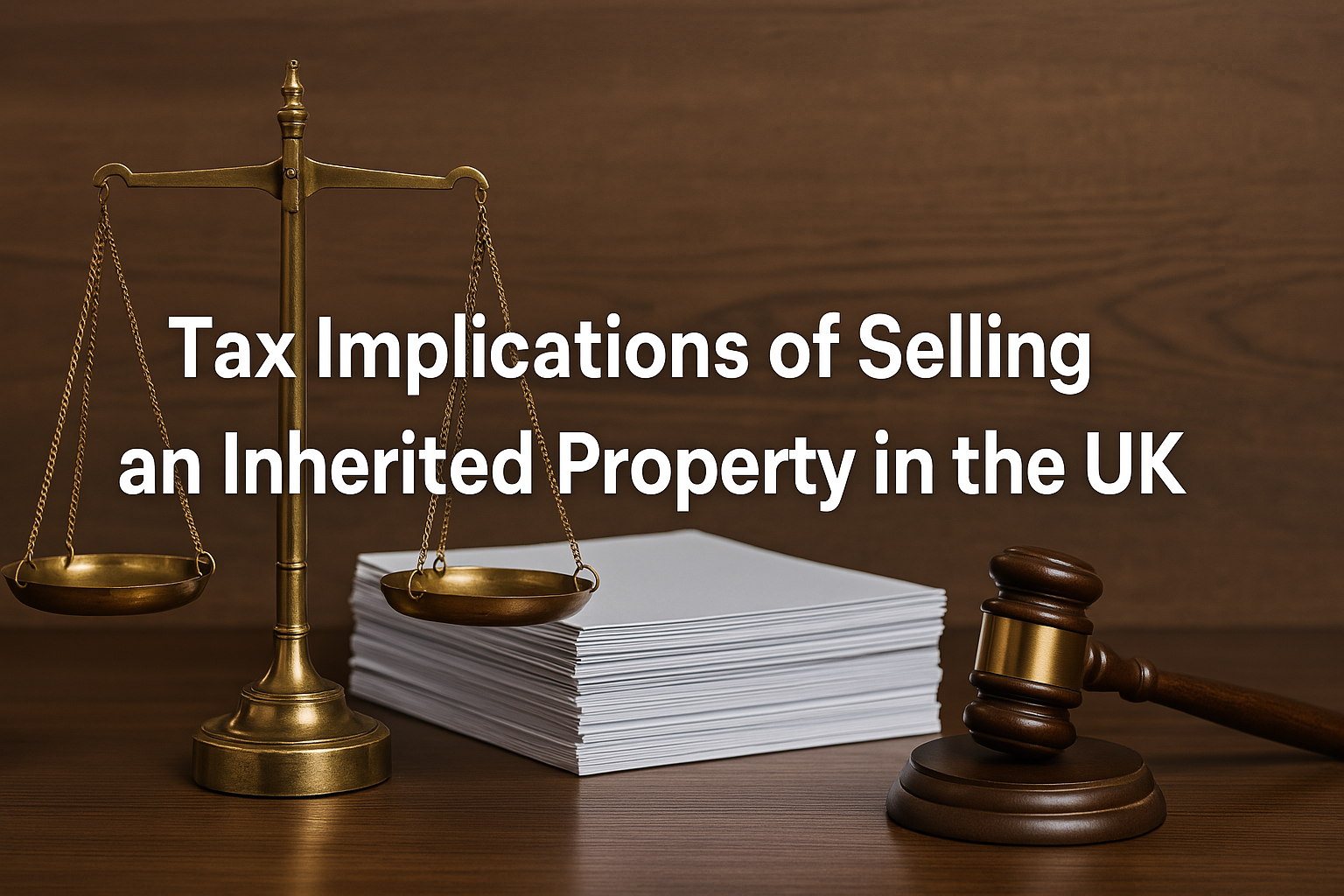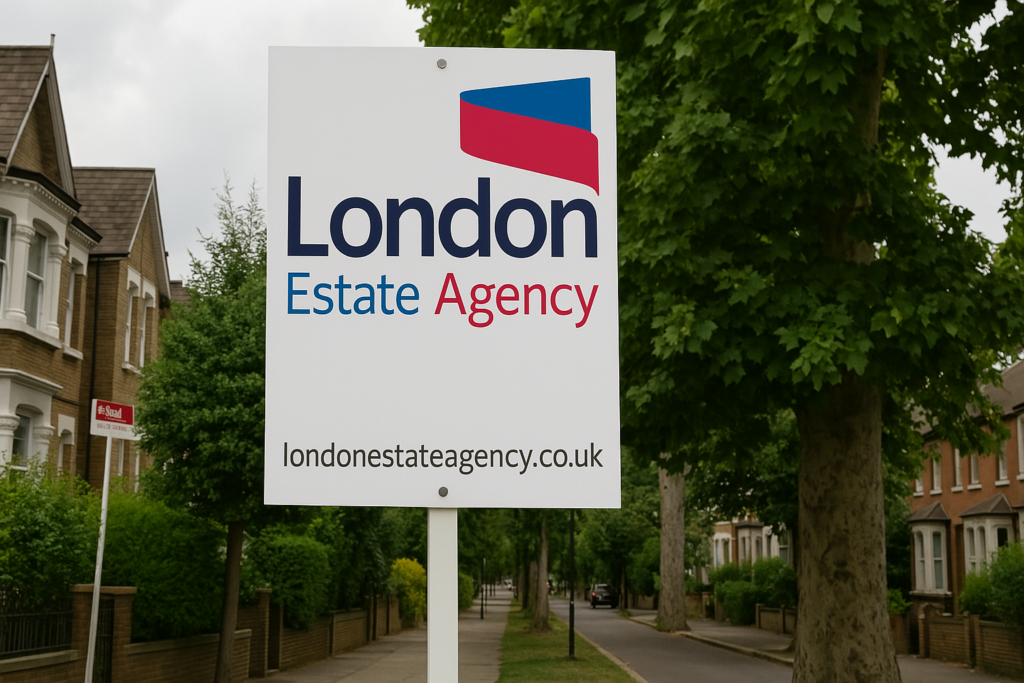Understanding Probate and Property Ownership
Before you can sell an inherited property, probate must be granted.
This legal process confirms that the deceased’s Will is valid and that the executor has the authority to deal with the estate.
If there’s a Will, the named executor applies for probate.
A family member can apply for Letters of Administration if there is no Will.
Once probate is granted, you become the legal owner and can proceed with the sale. London Estate Agency offers probate support services to ensure everything is processed efficiently.
Inheritance Tax (IHT): What You Owe
Inheritance Tax is usually the first tax consideration when a property is inherited.
The standard IHT rate is 40%, but it only applies to the portion of the estate over the £325,000 threshold (known as the nil-rate band).
Key Facts About Inheritance Tax:
If the property is passed to children or grandchildren, the threshold increases to £500,000 (thanks to the residence nil-rate band).
The estate usually pays IHT, not the individual inheritor.
If the estate is below the threshold, no IHT is due.
Married couples can combine their allowances, totalling £1 million, if passing the estate to direct descendants.
At London Estate Agency, we guide you through calculating your potential IHT liability and ensure proper reporting to HMRC.
Capital Gains Tax (CGT) on Inherited Property
Capital Gains Tax comes into play only when you sell the inherited property—not when you receive it.
The key principle is this: you are taxed on the gain in value from the date of inheritance to the date of sale.
CGT Calculation Example:
Property valued at £400,000 on date of inheritance
Sold later for £450,000
Gain = £50,000
You may be liable to pay CGT on that £50,000 gain minus any available allowances or deductions.
Important CGT Allowances:
Each individual has an annual CGT allowance (£3,000 for 2025/26).
If multiple beneficiaries inherit the property, each one’s allowance can apply.
Selling costs like estate agent fees, legal fees, and capital improvements can be deducted to reduce the taxable gain.
We ensure your gains are accurately calculated, and all reliefs are applied.
Reporting and Paying CGT
You must report and pay Capital Gains Tax within 60 days of the property sale completion.
Steps for Reporting:
Set up a Capital Gains Tax on UK Property Account with HMRC.
Calculate the gain and submit your return.
Pay the tax due within the 60-day timeframe.
Missing the deadline may result in penalties. Our team can manage this process on your behalf to ensure full compliance.
Using the Property Before Sale: Implications
If you rent the property before selling, the rules become more complex.
You must declare rental income to HMRC.
You may be entitled to lettings relief, although this has been heavily restricted in recent years.
Private Residence Relief (PRR) usually doesn’t apply unless you live in the property as your primary residence.
Our property tax specialists help you make the most financially beneficial choice based on your situation.
Joint Inheritance: Dividing the Tax Burden
When multiple heirs inherit a property, each is responsible for reporting and paying tax on their share of the sale proceeds.
For example:
Three siblings inherit a property equally.
Each is taxed individually on one-third of the capital gain.
At London Estate Agency, we coordinate multi-heir sales, making the process smooth, transparent, and legally sound.
HMRC Valuation Scrutiny
HMRC may challenge your property valuation if it believes the declared value was too low or too high.
To avoid disputes:
Get a professional RICS-accredited valuation at the date of death.
Keep detailed records of all improvements, costs, and selling expenses.
We work closely with trusted chartered surveyors to provide defensible property valuations that meet HMRC scrutiny.
What If You Decide Not to Sell?
Holding onto the property and turning it into a rental or second home changes the tax implications.
You may still face CGT when eventually selling.
Rental income must be declared and taxed under Income Tax rules.
Additional property ownership can affect your Stamp Duty Land Tax (SDLT) liabilities if you buy another property.
Whether you sell now or later, early tax planning is crucial. Our advisors can help structure your decision in the most tax-efficient way.
Why Work With London Estate Agency?
We are more than an estate agency. At London Estate Agency, we:
Offer in-house probate support
Handle professional valuations
Provide capital gains tax planning
Deliver full-service sales management
By instructing us, you gain access to a team that ensures every step—from legal to tax—is expertly managed.
FAQs on Selling Inherited Property in the UK
Do I pay tax when I inherit a house?
Not directly. Inheritance Tax is paid from the estate. You may pay Capital Gains Tax when you sell it later.
How do I calculate Capital Gains on inherited property?
The gain is the difference between the value on the date of inheritance and the sale price minus allowable costs.
Can I avoid paying CGT on inherited property?
There’s no full exemption unless you live in the property. However, reliefs and allowances can reduce your liability.
What if multiple people inherit the house?
Each person is responsible for their share of tax liabilities and should file accordingly.
What are the deadlines for reporting taxes?
CGT must be reported within 60 days of the sale. Inheritance Tax is typically settled before probate is granted.
Contact Us Today
Selling an inherited property involves complex tax rules—but you don’t have to navigate it alone.
London Estate Agency is here to help you sell smarter, avoid penalties, and maximise your proceeds.
If you need expert help, contact us today to begin your tax-smart property sale.





